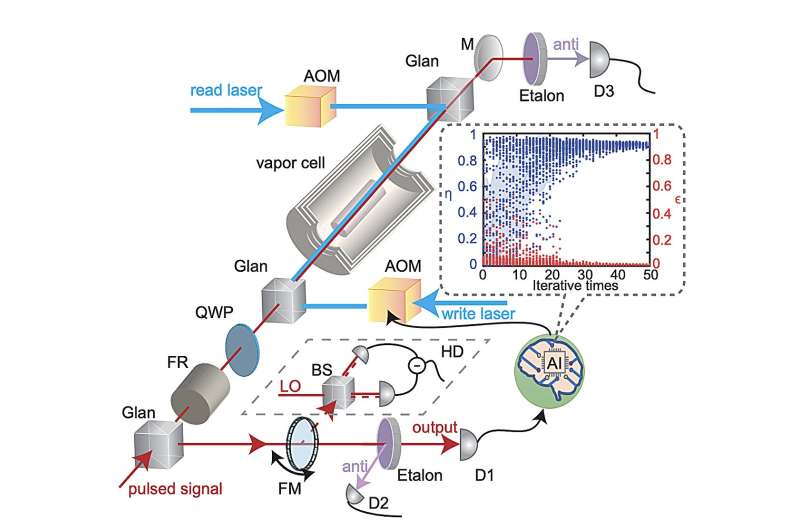A groundbreaking development in quantum memory technology has been achieved by a team of researchers led by Professor Weiping Zhang from Shanghai Jiao Tong University and Professor Liqing Chen from East China Normal University. They have successfully created a Raman quantum memory that boasts an impressive efficiency of 94.6% and a fidelity of 98.91%. This innovation marks a significant step toward practical applications in quantum information processing and storage.
Advancements in Quantum Memory Technology
Quantum memories are crucial for storing and retrieving quantum information, typically encoded in light or other physical carriers. For these devices to be effective in real-world scenarios, they must achieve both high efficiency and high fidelity. Traditionally, many approaches to developing quantum memories have resulted in undesirable noise, which diminishes the quality of the stored information. The recent work by Zhang and Chen addresses these challenges directly.
The researchers’ findings, published in Physical Review Letters, introduce a new method to control atom-light interactions, which significantly enhances the performance of quantum memory. By utilizing a far-off resonant Raman scheme, they demonstrate that their quantum memory can store optical signals at a speed superior to previous methods, while maintaining exceptionally low noise levels.
A New Technique for Optimizing Quantum Memory
The innovative technique presented by the researchers is based on the principle of atom-light spatiotemporal mapping, specifically employing a mathematical tool known as the Hankel transform. This approach not only clarifies the underlying physics of atom-light interactions but also lays the groundwork for achieving what Zhang describes as “perfect” quantum memory.
“Quantum memory with near-unity efficiency and fidelity is indispensable for quantum information processing,” said Zhang. “Achieving such a performance has long been a central challenge in the field, motivating extensive research efforts and inspiring the published work.”
Through their mathematical advancements, the team successfully overcame the “efficiency-fidelity trade-off” that has historically hindered the development of optimal quantum memories. The quantum memory they designed operates using a warm rubidium-87 (87Rb) vapor, which has proven effective in this context.
The implications of this research are far-reaching. Enhanced quantum memories could pave the way for advancements in long-distance quantum communication, quantum computing, and distributed quantum sensing systems. Zhang noted that future research will focus on exploring new physics-driven principles and integrating these memory systems into quantum repeaters, which are essential for fault-tolerant quantum computing architectures and networks.
This remarkable achievement not only showcases the potential of quantum memory technologies but also represents a significant milestone in the ongoing quest for robust quantum information systems.
For further details, refer to the study titled “Near-Perfect Broadband Quantum Memory Enabled by Intelligent Spin-Wave Compaction” by Jinxian Guo et al., published in Physical Review Letters on November 15, 2025.







